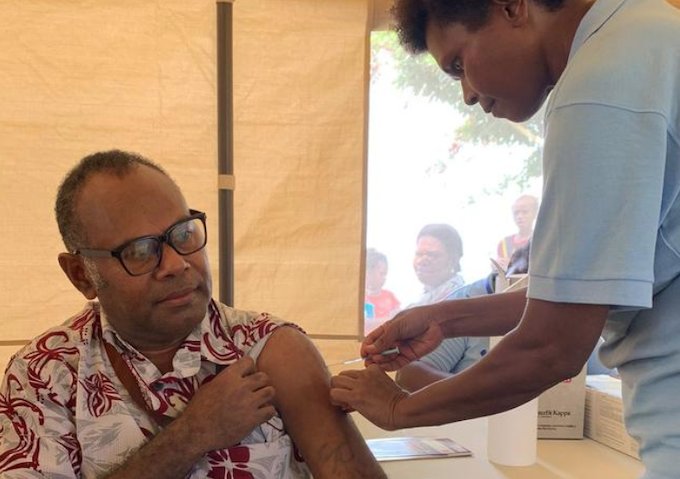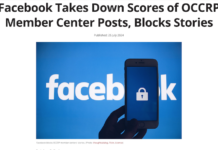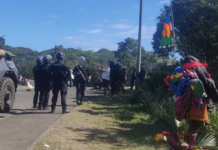
By Eleisha Foon, RNZ Pacific journalist
Concern is growing around low covid-19 vaccine rates in the Pacific.
People in developing nations are generally missing out due to accessibility issues, a slow roll out of vaccines, difficulties getting to remote areas, a lack health of resources and misinformation resulting in vaccine hesitancy.
But ChildFund director of programmes Quenelda Clegg said developed countries need to support the Pacific and also stop hoarding vaccines.
- READ MORE: Covid-19: Omicron taking over delta in New Caledonia
- Covid-19: Kiribati extends lockdown as 65 new cases recorded
- Other Pacific covid reports
The organisation has been raising awareness about vaccine inequity and the issues happening in the Pacific.
“We need to support our neighbours. They are having covid in their countries and we are starting to see those outbreaks,” she said.
“They do need more and there needs to be a continual supply to ensure they get their vaccinations up to double dose and they need to consider boosters and vaccinations for children.”
Papua New Guinea has some of the lowest vaccination rates in the world — only 3 percent of the population are double vaccinated. This is due to the high reluctance of more than 8 million people that live there, which resulted in many vaccines being dumped.
Solomon islands is only nearing 10 percent full vaccinated people and Vanuatu is about 44 percent.
Samoa is 63 percent double vaccinated and Kiribati is 50 percent double vaxxed.
New Zealand supplies
“The New Zealand government has given a good supply to Indonesia and Papua New Guinea, but they have committed to sending more so we must ensure they do that and hold them to account,” Clegg said.
COVAX, the worldwide initiative aimed at equitable access to covid-19 vaccines, needed to do more, she said.
A New Zealand Ministry of Foreign Affairs spokesperson said that a further 1.7 million doses had been donated to Pacific nations via the Covax scheme, but sourced outside the advance purchase agreement, meaning they did not count towards New Zealand’s share of 7.6 million doses.
A total of 211,200 AstraZeneca doses had been sent to island nations so far, with the bulk going to Papua New Guinea.
She said some developing countries — New Zealand excluded, were giving away vaccines when they were almost expired.
However, MFAT is yet to confirm what NZ plans to do with its latest batch of AstraZeneca vaccines which will expire this coming April.
“The support to COVAX needs to be strategic and meaningful. It can’t be when they’re just about to expire.”
She warned new variants could emerge “from the Pacific, if we don’t do something now”.
This article is republished under a community partnership agreement with RNZ.











































